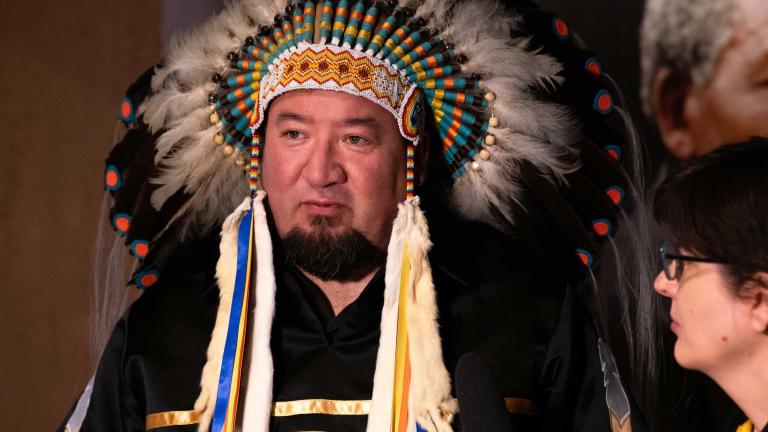This release is more than two years old
This release is more than two years old. For additional information, please contact Amanda Gaudes from our Media Relations team.
News release details
Indigenous leader Derek Nepinak will mark the International Day for the Elimination of Racial Discrimination on March 21 by leading a public conversation about Nelson Mandela’s lessons for Canada.
Nepinak (Niibin Makwa) spent 27 hours fasting in the Museum’s replica of Mandela’s prison cell last December and will share insights from his experience. He will be joined by Dr. Dolana Mogadime, a South African‐Canadian educator whose mother fought as an anti‐apartheid activist, and by Isabelle Masson, curator of the CMHR exhibition, Mandela: Struggle for Freedom. The panel will be introduced and moderated by David McLeod, director of Native Communications Inc. (NCI) Radio.
Anishnaabe Elder Fred Kelly (Kizhebowse Mukwaa), will deliver a reflection and invocation. Kelly is a survivor of the residential school system and was a member of the team that negotiated the Indian Residential Schools Settlement Agreement.
On March 21, 1960, police in Sharpeville, South Africa killed 69 people who were peacefully protesting discriminatory “pass laws” that ruled all aspects of life and mobility for non‐white people under apartheid, the oppressive system of racial segregation in South Africa from1948 to 1991. The United Nations in 1966 officially designated the date of the Sharpeville massacre as a time to redouble efforts to end all forms racial discrimination around the world.
The CMHR event will explore parallels between discrimination against non‐white people in South Africa and Indigenous peoples in Canada, including pass systems, educational deficiencies and separation of children from their families.
WHAT: Public discussion about racial discrimination and Mandela’s lessons for Canada
WHEN: Thursday, March 21, 6:30 p.m. to 8:30 p.m.
WHERE: Bonnie & John Buhler Hall, CMHR, 85 Israel Asper Way
Public attendance at the event requires a free ticket, which can be obtained online, by calling 204–289-2000 or from the Museum’s ticketing desk.
Mandela: Struggle for Freedom includes an examination of the Sharpeville massacre and its role in mobilizing people against state‐sanctioned racism. It also touches on efforts by some Indigenous leaders in Canada to draw attention to rights violations at home during the global movement against apartheid in the 1980s.
The exhibition also features a replica of Mandela’s tiny jail cell, where Nepinak spent 27 hours to reflect on the 27 years Mandela was imprisoned without wavering in his commitment to fight racial injustice. Nepinak is a former Grand Chief of the Assembly of Manitoba Chiefs (AMC).
Excerpts from a video‐recorded interview with Mogadime’s mother, Caroline Goodie Mogadime, a South African teacher and freedom fighter, can also be found in a section of the exhibition that looks at Canadian connections to the anti‐apartheid movement. Dolana Mogadime, an associate professor in the Faculty of Education at Brock University in Ontario, is the CMHR’s first Scholar in Residence and is working with the Museum to create a national resource for educators about teaching Nelson Mandela in the classroom.
-30‐
This release is more than two years old
This release is more than two years old. For additional information, please contact Amanda Gaudes from our Media Relations team.
